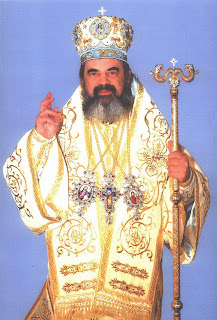The Pope sent a delegation to Bucharest on Sunday to participate in the solemn enthronement celebrations of Patriarch Daniel Ciobotea, the new leader of 19 million Romanian Orthodox.
The Vatican delegation was led by Cardinal Walter Kasper, president of the Pontifical Council for Promoting Christian Unity, and included Bishop Brian Farrell, secretary of the same dicastery, and Archbishop Jean-Claude Périsset, apostolic nuncio to Romania.
As a “pledge to search for full communion,” Cardinal Kasper gave the patriarch a chalice in the Pope’s name. He also delivered a letter from the Holy Father, written in French, which told the patriarch that “Catholics are standing with their Orthodox brethren, with prayer and availability, to offer useful collaboration.”
“The one and only Gospel waits to be proclaimed by everyone together, in love and reciprocal esteem,” wrote Benedict XVI.
The message recalls the good relations established by Pope John Paul II and the then Patriarch Teoctist.
Patriarch Teoctist died July 30, at age 92. He had served 19 years as patriarch.That meeting of religious leaders and the words spoken at that time, said Benedict XVI in his message, “continue to be relevant for me and the Catholic Church, highlighting that it is especially necessary to intensify the bonds that unite us for the good of the Church.”
The Bishop of Rome said that strengthening the friendship between Catholics and Orthodox will be decisive “to respond to today’s needs in Europe and the world, on both the religious and social levels.”
“A common witness of Christians is ever more necessary to respond to our shared vocation and to urgencies of our time,” concluded the message.
Patriarch Daniel, 56, was the metropolitan of Moldova and Bukovina. A renowned intellectual, the patriarch boasts three doctorates, two received abroad, 12 years of ecumenical studies and more than 10 years as a monk.
Among the Orthodox Churches, the Romanian Church is second only to the Russian Church in the number of faithful.

